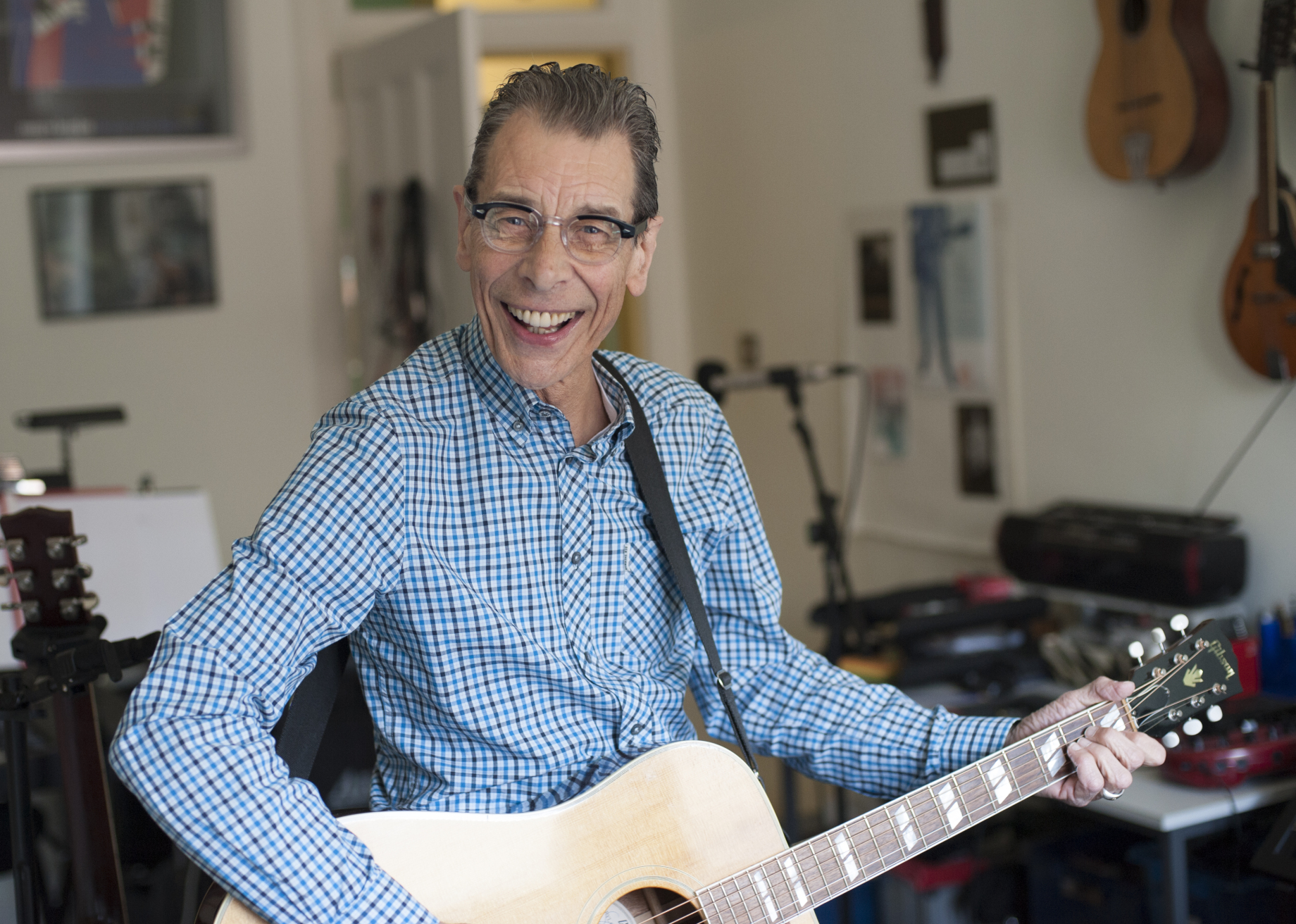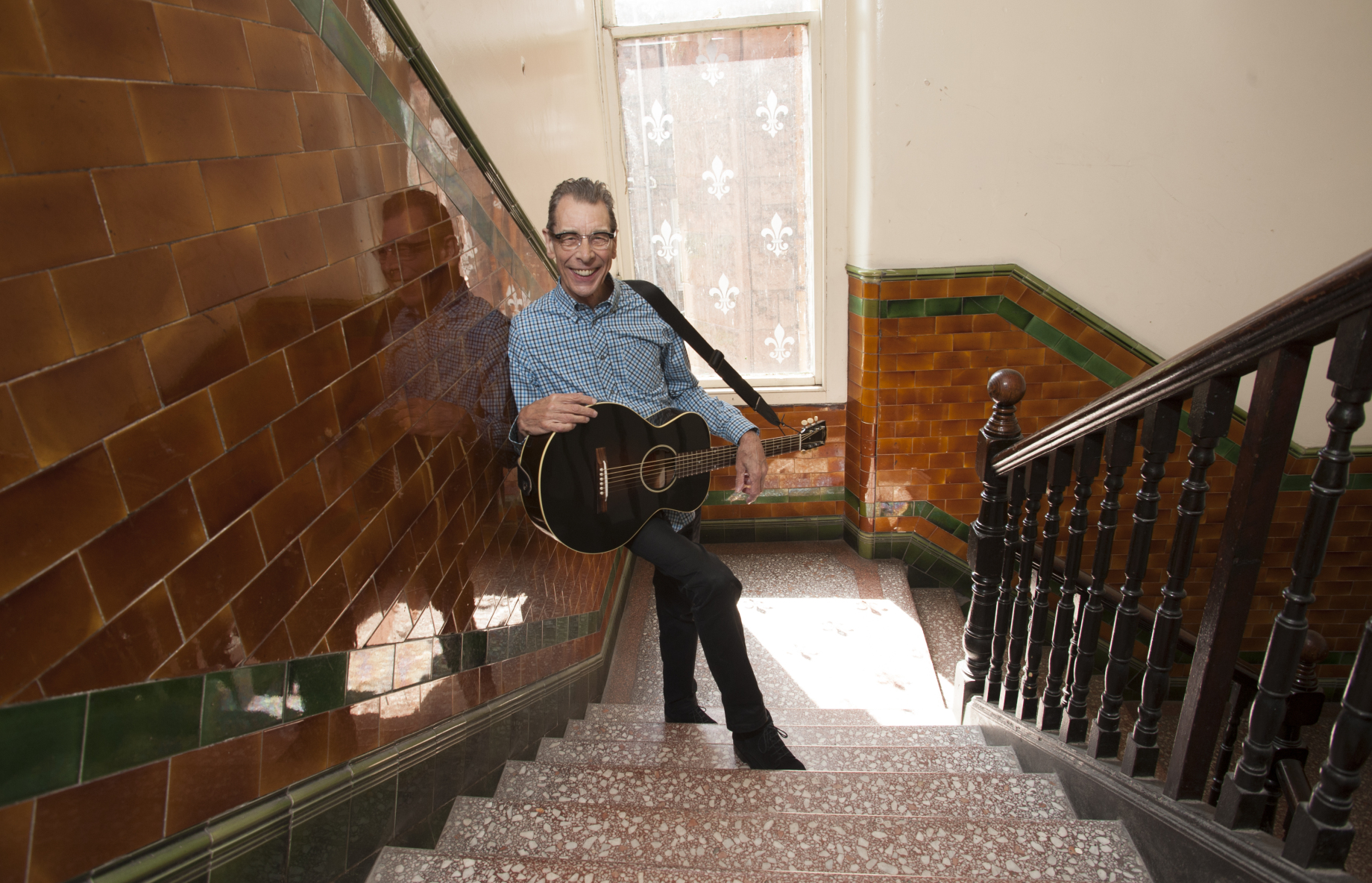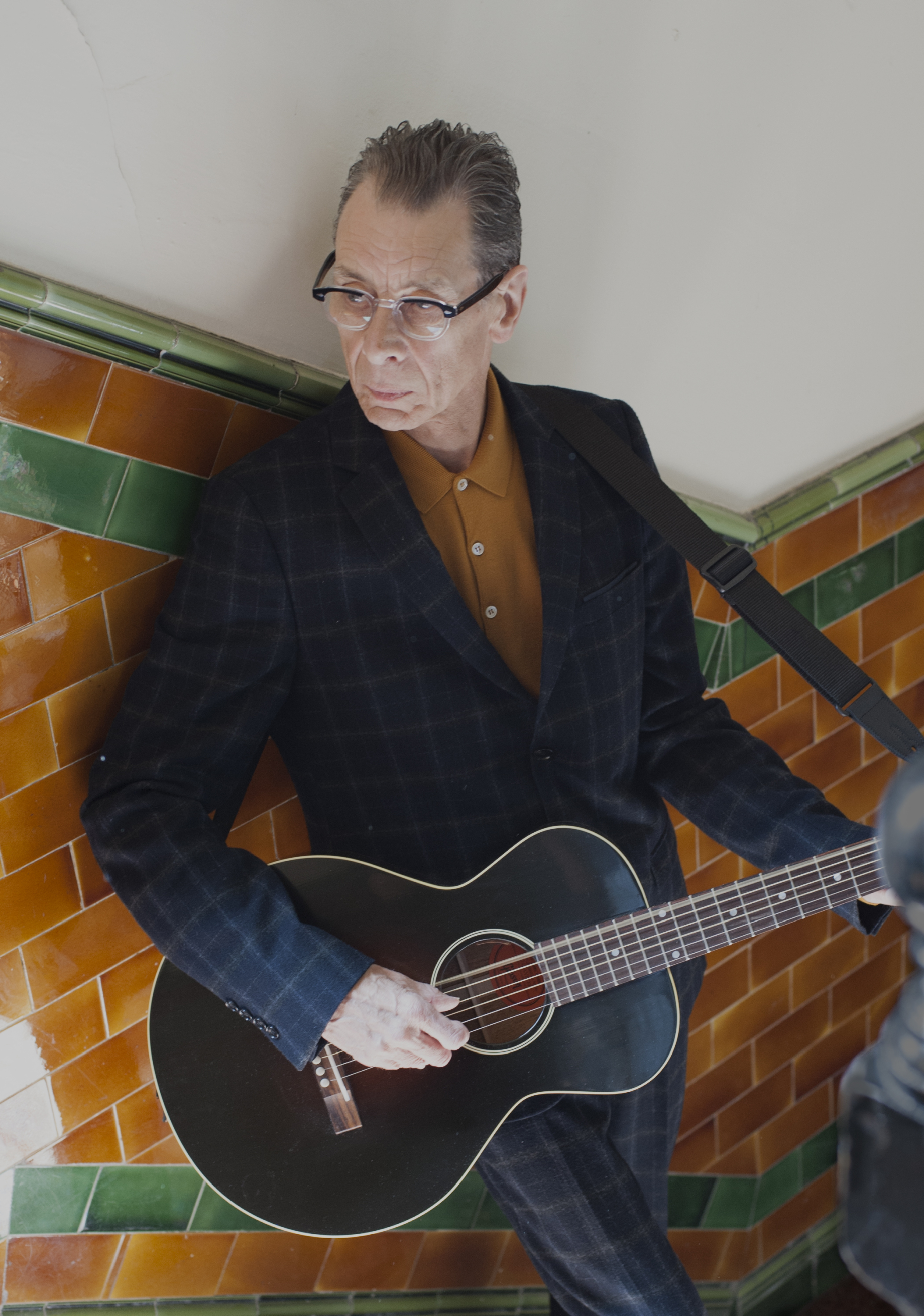Rab Noakes 70/50 in 2017
The redoubtable Rab Noakes, our favourite stylish veteran troubadour from the Kingdom of Fife, has already kindly blogged for us about his early gig-going experiences in Glasgow, and his stories were so good that we incorporated them in our Glasgow’s Music Mile tour (paying full credit to Rab, naturally).
But as he prepares to celebrate his 70th birthday and fifty years since playing his first professional gig (at the Glasgow Folk Centre) at his Celtic Connections headliner, Rab Noakes 70/50 in 2017, we turned the spotlight on Rab himself and asked him to talk us through his fifty year career, including memories of his brief time with Gerry Rafferty in Stealers Wheel, the inspiration behind their most famous song and meeting Elvis’s favourite songwriter. Over to Rab…

Photograph by Carol Ann Peacock
On his earliest musical memories
I had always sung ever since I was a wee laddie. My early experiences are all from the radio, a combination of the Light Programme and the Home Service. I always loved things like Danny Kaye singing Ugly Duckling – novelty songs but cleverly written, professionally constructed songs. I like to think that something was being implanted in me at that time of what the song could be.
On his first performances
There was visits to Miss Neilson’s singing class and my first public performance of Westering Home. I grew up in a small town in Fife where spinster women would devote themselves to a practical public service and Miss Neilson was one of those. I don’t remember any of the instruction I was given, other than from my mother who told me to find something in the room to stare at while I performed. But I found performing at the Christmas parties doing things like Mary’s Boy Child, all those other mothers would be watching young Bobby Noakes with tears in their eyes and I thought ‘this is not a bad thing to be able to do’ so I got an early taste of the joys of performing in public and had a little skiffle group at the end of primary school.
On Bob Dylan and Scottish folk music
I started playing guitar and Bob Dylan came along and that unlocked a lot of things. He was the gatekeeper who introduced my generation to folk music and even your own indigenous folk cultures. There was a bit of Robin [Hall] and Jimmie [Macgregor], and the White Heather Club contained little interesting bits but then this whole vista opened out and getting out there and performing became something a bit more interesting. Ironically, it was listening to Bob Dylan that bounced us into Scottish folk song. We never got that at school.

Photograph by Carol Ann Peacock
On getting started in London
Busking in London used to be terribly well organised. There was a pub called the Earl of Sandwich off the Charing Cross Road and that’s where it was all carved up. We got caught out a couple of times – let’s just pitch up and play here, then someone would come along and say ‘you’ve got to clear off guys, this is my pitch for the next couple of hours’.
On his first professional gig
When I came back from London in 1967 I teamed up with a guy called Robin McKidd as a banjo-guitar duo and he knew a lot of the old timey repertoire. We were booked by Drew and Pearl Moyes to play the Glasgow Folk Centre in Montrose Street. It was a rickety old warehouse building and you went up some shoogly stairs to get to it. It was a great place to be around at the time because Billy Connolly and the Humblebums were around, Iain McGeachy who became John Martyn, and the older guys like Hamish Imlach who we learned a lot from.
On meeting the clowns and the jokers of Stuck in the Middle With You
I was there that night! That song was written about a specific evening. We were in one of those downstairs places on the Kings Road. Stealers Wheel were signed to A&M Records and Jerry Moss [the M in A&M] was hosting the dinner with Larry Yaskiel who ran the London company so you had the managers and Jerry Moss on one side of the table. On the other side of the table were some producers that we weren’t going to work with but they came along to the free dinner anyway. Larry, to his eternal credit, was with the boys in the band in the middle where we were drinking and having fun. That was the scenario out of which came that song that’s had so many lives.
On his songs being recorded by other artists
Those were all the fruits of relationships. I met the Lindisfarne guys [who recorded his Turn a Deaf Ear and Together Forever] when the band was forming out of Brethren, a blues group from the north east. We met when I used to perform around that area. We were all about the same age, listened to the same records, so there was a lot of combined experience there. I’m very glad they decided to do those songs and it’s something I wouldn’t have minded having happen more than it did. I didn’t try and sell songs all that seriously. If I had done a bit more of that, that might have been something that bore more fruit later on.
On how to sell a song
Professional songwriters are interesting people – I met Jerry Lieber [who wrote many Elvis hits with his partner Mike Stoller] once in the 1970s when I was making my second record in the United States. I took the train to New York and visited Warner Brothers and Jerry. Not long after we sat down in his office – this is 1974, so he doesn’t need to do another day’s work in his life – the first thing he said was ‘oh, you’re making a record, are you looking for some songs?’ and he gets a tape out and plays me Pearl’s A Singer which became a hit for Elkie Brooks later on. The most impressive part of that is that this is what he does when he meets a singer who’s going to make a record – I must try and sell them a song.

Photograph by Carol Ann Peacock
On modern pop styles
So many records nowadays are producer’s records. The creativity is coming from the producers, whether as songwriters or co-songwriters, so singers are being encouraged in the recording process to sing to a template, and often there’s a bit of technology involved in assisting it, as ever it was. But the technology of today does tend to like that compressed, breathy sound with a lot of affectation. Passing phase maybe…
On songwriting
I would always be writing songs anyway even if there wasn’t a purpose to it, because I do like that as a creative outlet, as a means of expression. I don’t think of it as a communication as such – I think it’s presumptuous to think you are communicating with people. We throw all that stuff out and you have no idea where it’s going to land and occasionally now there are people coming up to me who haven’t seen me for forty years, people who met undercover of a song of mine. You would never be as presumptuous as go out and attempt to achieve that, but there’s something quite encouraging about that.
Rab Noakes 70/50 In 2017, Old Fruitmarket, Glasgow, 2 Feb. The Treatment Tapes EP is released by Neon Records on 20 Jan
